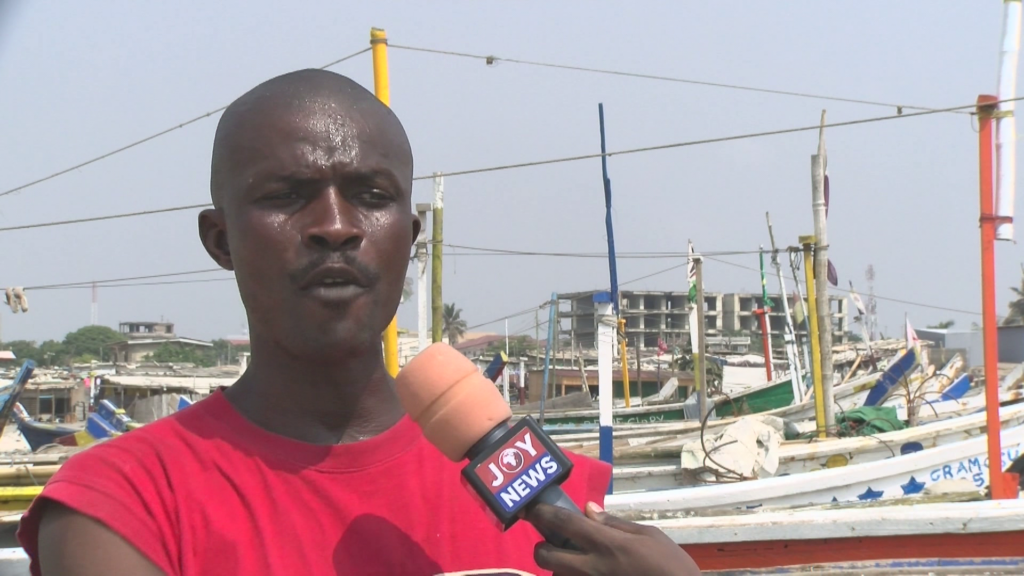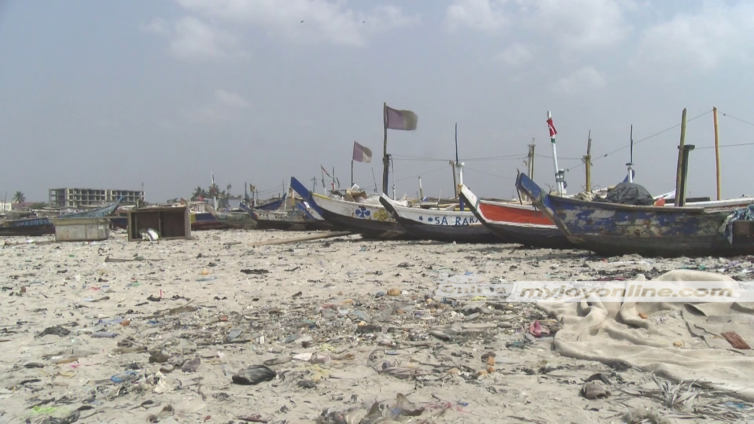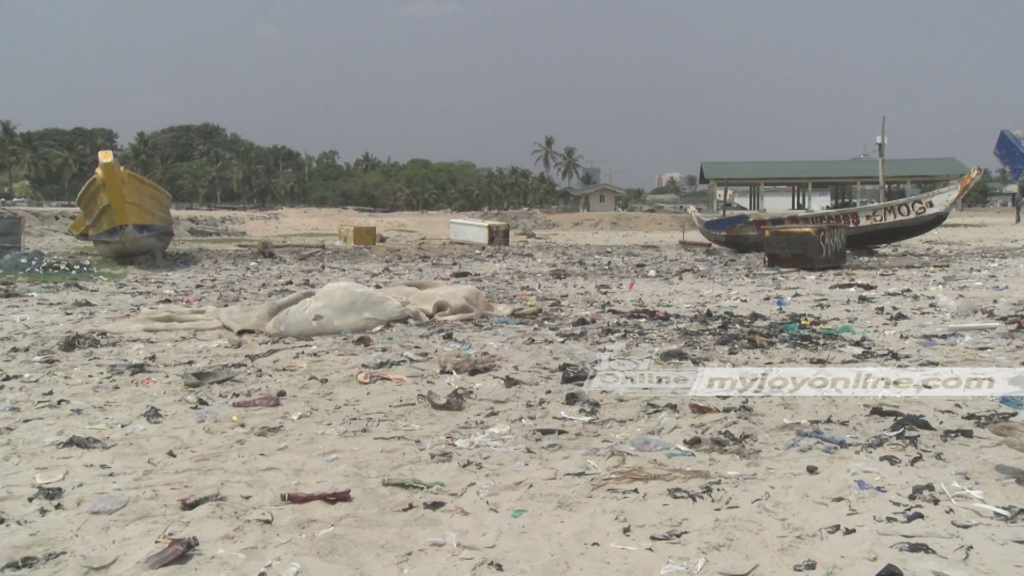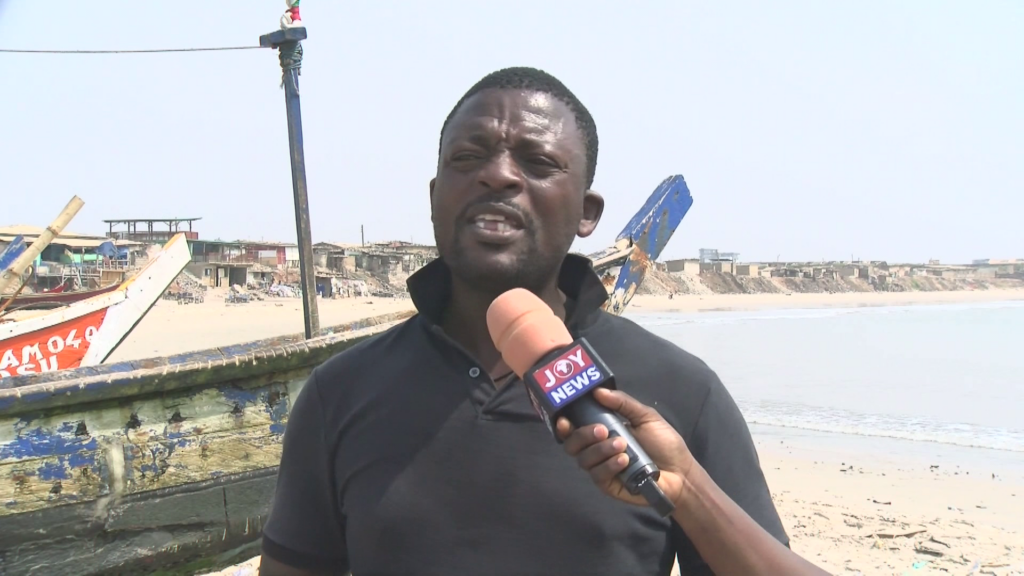Over the years, residents along the Osu beach, like many other beaches, have grappled with pollution, including paper and plastic.
However, fishermen in the coastal community have adopted the practice of burying tons of plastic waste at the shores to address the escalating waste issue along the coastline.

The fishermen argue that a significant portion of the litter scattered on the coastline is not solely theirs, but leaving the plastic waste unattended poses a serious threat to their source of livelihood.
The fishermen have initiated a clean revolution by burying the waste they encounter at the shore.

Patrick Lokko, a fisherman, expressed frustration with the constant littering along the coast and highlighted the collective effort of some fishermen to clean the beaches.
He explained that due to the inability to afford waste collection services, they resort to burying the waste after gathering.
Plastic waste, unlike other materials, does not biodegrade and can take up to a millennium to break down when not properly discarded.

This pollution negatively impacts marine wildlife, damages soil, poisons groundwater, and poses health risks.
Michael Dogberfu, another fisherman, emphasised that plastic waste is affecting their livelihood and, despite knowing their waste management method is not ideal, stated that it is the best they can do at the moment.

While their efforts initially bring a sense of accomplishment, the buried rubbish resurfaces over time.
However, there is another initiative by individuals seeking to profit from the tons of plastic waste resurfacing on the beaches.
They collect discarded plastic bottles and sell them to specific companies for recycling and processing.
Despite acknowledging that burying plastic waste is not the best practice, the fishermen believe it is a necessary interim measure due to the lack of waste disposal infrastructure in the area.
They are appealing to the government for resources to ensure proper disposal of the waste collected at the seashore.
